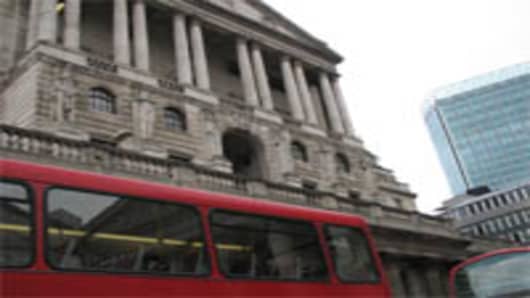The second round of "quantitative easing" by the Bank of England which will see it purchase 75 million pounds ($118.2 billion) of government bonds over the next few months could cause unemployment to rise, according to one analyst.
"More QE in this current environment could increase our unemployment rate because it will put money into large businesses which will invest in technology to make themselves more efficient and then they can lay off workers now they are more efficient," Ralph Silva, research director at Silva Research Network told CNBC Wednesday.
The latest round of QE would help the banking system but it won't put money into the hands of the people who will actually spend it, Silva added.
Bank of England minutes showed that the Monetary Policy Committee voted unanimously for further QE at October's meeting.
Tuesday evening saw the bank's governor, Mervyn King, defend the move for more stimulus arguing that "the problems in the euro area and the marked slowing of the world economy" had thrown the UK recovery off course.
Ruth Lea, economist at Arbuthnot Banking Group, disagreed that companies would invest, because they were already sitting on large cash reserves.
"In the last bout of QE yes there were more corporate bonds, they managed to have more funds but it didn't mean that investment really took off.
This QE is really about helping the banks," Lea said.
Silva said policymakers needed to think about getting money into the proper places and that further rounds of QE doing the same as previous rounds would not help the broader economy.
"We have a banking industry that simply cannot help us.
We're going to keep them afloat but until we fix them there's no way we can fix the economy," Silva added.
Lea said direct moves to help small to medium sized businesses in the UK were needed.
"The fund within the Department for Business could be expanded or get the government to get the commercial banks to do the lending for them, but the government takes the risk," she said.
George Osborne, the UK chancellor, will present his autumn statement next month where he will address the main concerns for the UK economy which is battling soaring unemployment and rising inflation.


